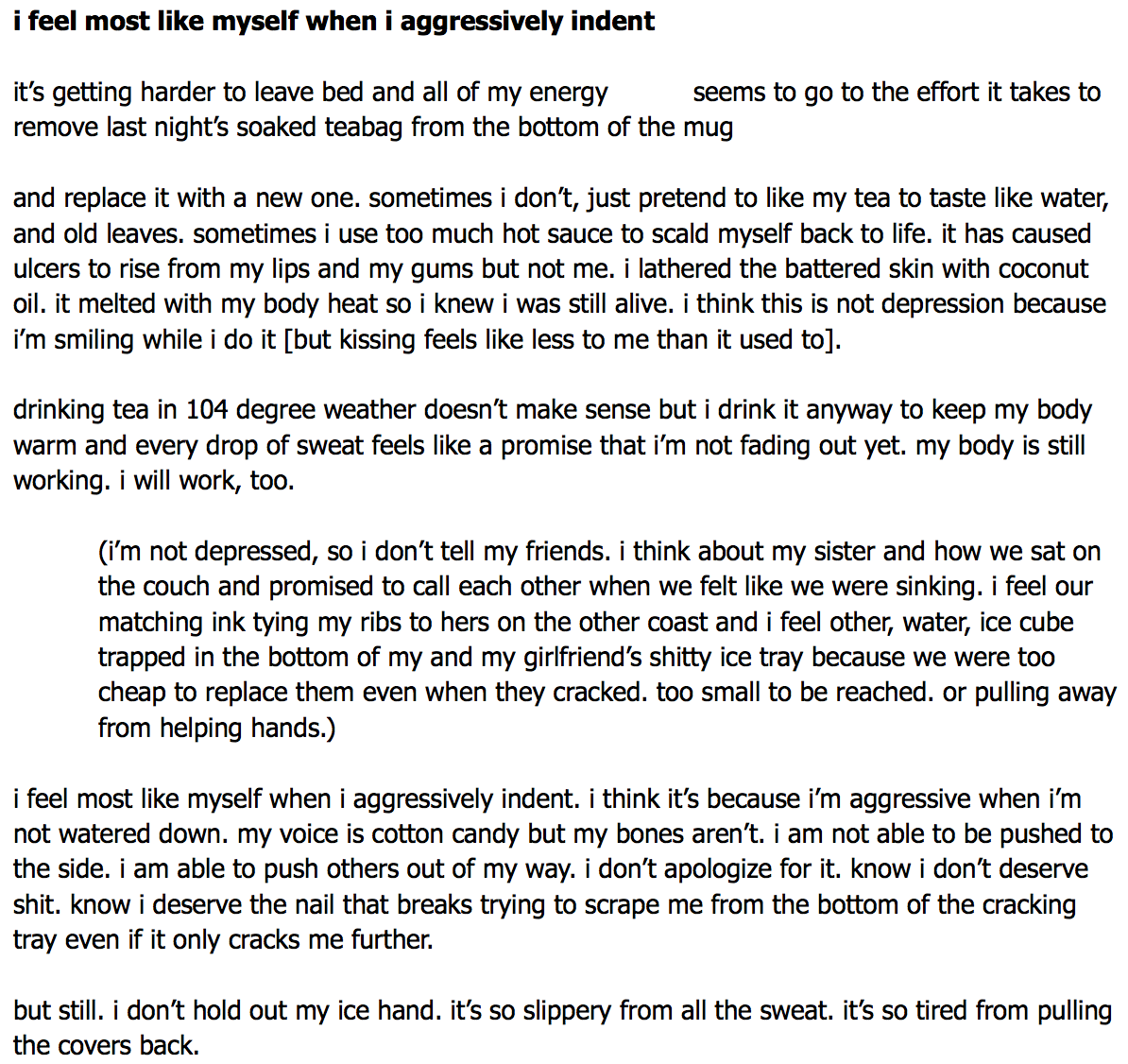levelheaded: i feel most like myself when i aggressively indent
The long title and even longer lines of Rachel Charlene Lewis’ “i feel most like myself when I aggressively indent” help create a spontaneous energy that makes the poem feel urgent, necessary. The simple diction and common syntax employed throughout invite us into the work, allowing us to empathize with the speaker grappling with the often cumbersome task of existing.
Though the writerly techniques Lewis employs helps her poem earn its organic feel, the work is not to be glossed over. Take a closer look at the first line. She writes, “it’s getting harder to leave bed and all my energy seems to go to the effort it takes to[.]” In its entirety, the line works as a cliffhanger, peaking our curiosity as we anticipate what “all [her] energy seems” to be working towards. Reading the line another way, we come to understand that not only is it hard for the speaker to get out of bed, but it’s equally difficult for her to abandon “all [her] energy.” She’s tired and restless. Digging deeper, Lewis suggests that all this energy may not even be real, as the word “seems”–marking the separation from the first half of the line like a split “seam”–commands special attention. What “seems” true may not be true. Seams split.
Our dissection of this first line isn’t meant to take away from the how wonderfully the poem can consume when swallowed whole. Throughout, smart line breaks like that at the end of line one thrust the reader into the unknown. They are engines of emotion, forcing feeling out of us similar to the way too much hot sauce might “scald [the speaker] back to life.”
The drama at the start of the second stanza where the above quote appears is high, but the silliness of hot sauce abuse keeps it from turning to melodrama. When the speaker confronts the possibility of depression (a big, broad, heavy topic) head on, we’re off balance enough as readers to be floored by a small, perfectly precise, understated detail (“kissing feels like less to me then it / used to”).
Exploring a tea bag and an unhealthy relationship with condiments reveal the speaker to herself and us. So does her examination of how she interacts with an old ice cube tray and the tab key. Life isn’t easy. Tired and restless, hot and cold, left justified and aggressively indented, the speaker is set on “uncovering,” sticking up for, and most importantly, being herself.
– The Editors







